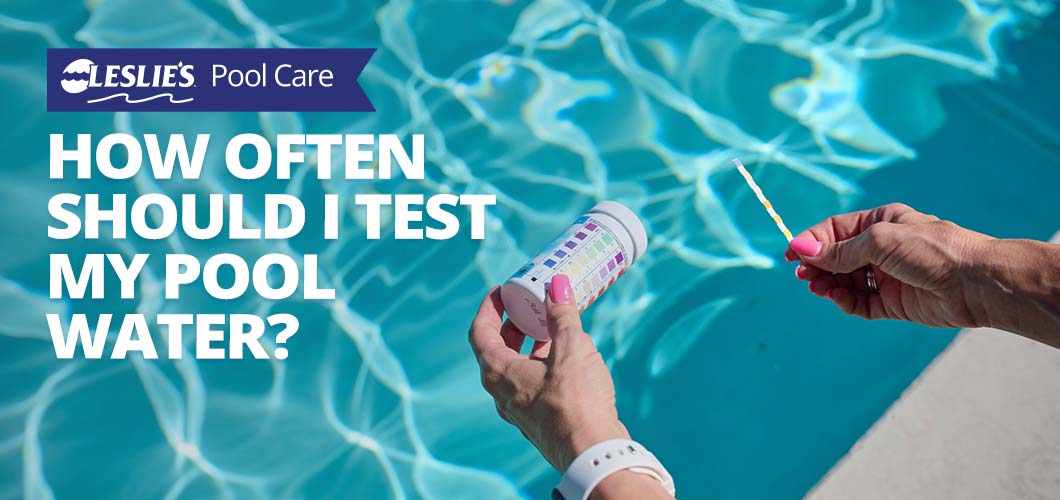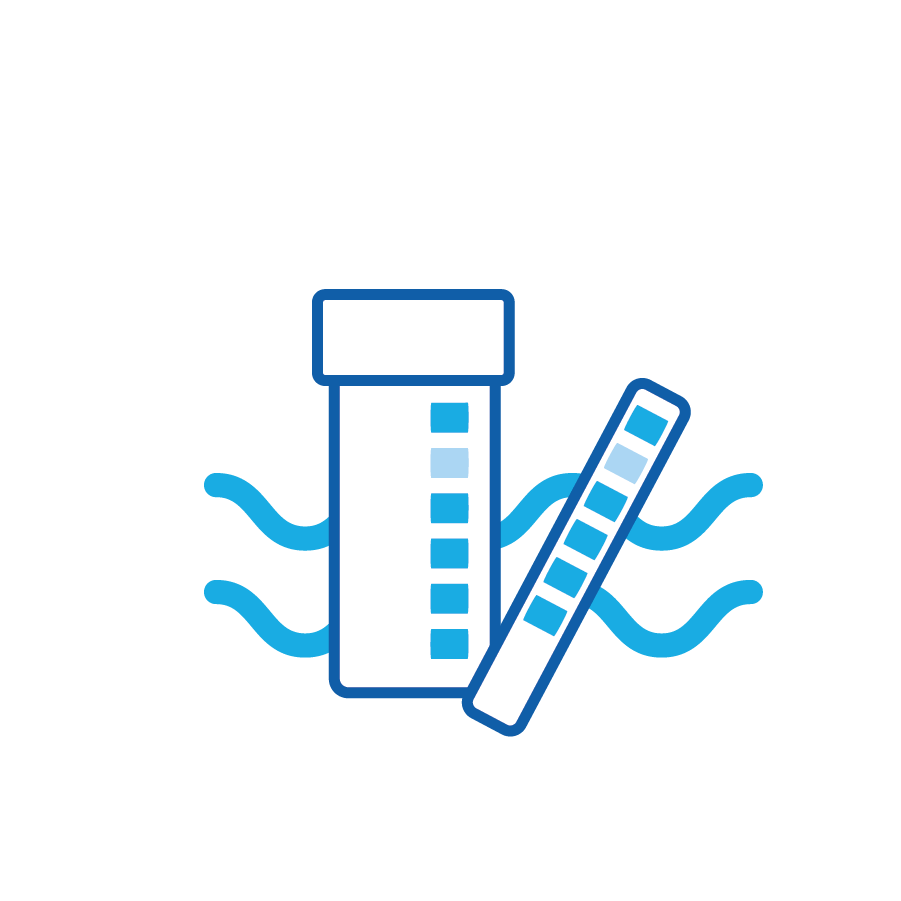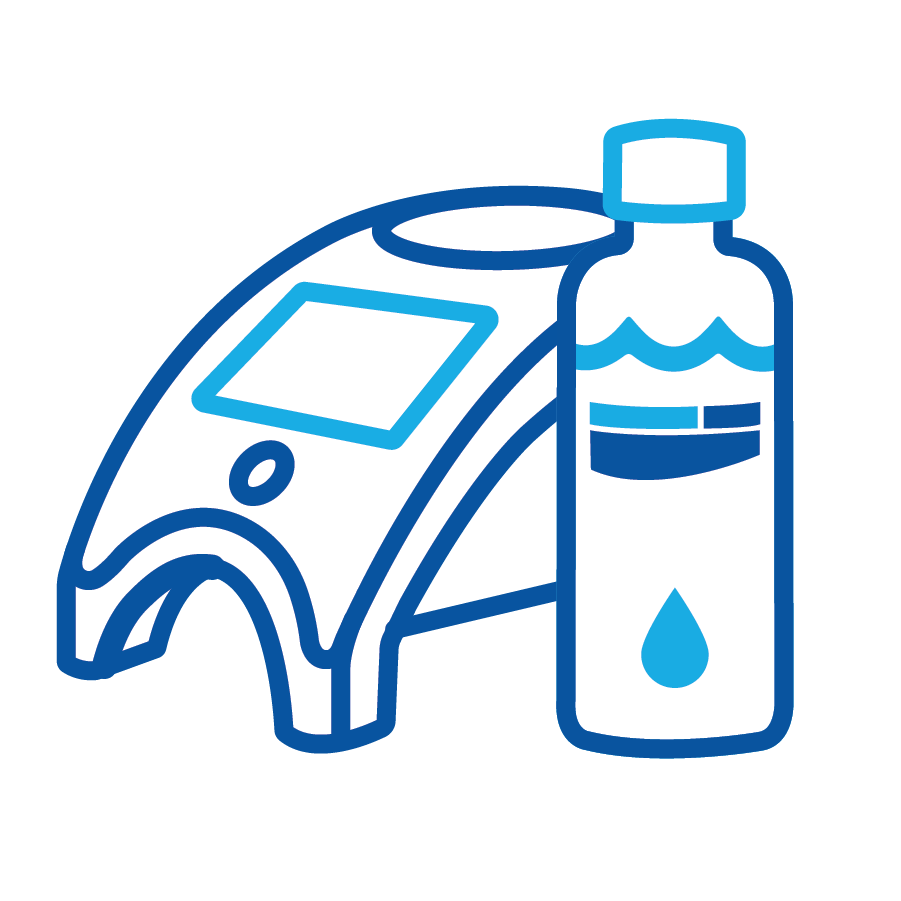
How Often Should I Test My Pool Water?
As a pool owner, you know how wonderful it is to have sparkling, clean, healthy water. You also know how keeping the water clean and inviting is a matter of diligence and care. When it comes to testing your pool water, there are various components that require continual balance. You may ask yourself, “How often should I test my pool water?” This can vary based on several factors, such as how often swimmers use the pool, the temperature of the water, and most importantly, the weather. So, how often should you test your pool? We’re glad you asked! In this article, we’ve got all the information you need regarding how often to test your water, ensuring your pool stays in tip-top shape all year. Plus, we’ll delve into the perks that come with regular testing.
The Importance of Testing Your Pool Water Frequently
Much like caring for your home, maintenance plays a vital role in safeguarding your pool from potential damage. Taking proactive measures can significantly prolong the lifespan of your pool’s surface and equipment, ensuring that you and your family can relish your backyard oasis without breaking the bank on repairs and upkeep.

Unsure where your water chemistry levels should be? The following are the ideal testing ranges:
- Chlorine: 1.0–4.0 ppm
- pH: 7.4-7.6
- Total Alkalinity: 80–120 ppm
- Calcium Hardness: 200–400 ppm
- Cyanuric Acid: 30–50 ppm
For even better understanding of comprehensive pool chemistry, check out our article on Pool Chemistry 101.
Testing Frequency in Cold Temperatures
During the cooler months, we use our pools less often. The cooler weather significantly decreases the chlorine demand your pool requires. If you’re not careful with chlorine applications, this can lead to excessive chlorine levels, which can damage pool covers and equipment. If the weather temperature is below 65º Fahrenheit, you should test your pool water’s chlorine levels every two weeks. If it’s even colder than that (below 60ºF), then you’ll only need to test monthly. However, if there's a contamination event, like rain, excessive leaves or pollen, or any major weather event, more frequent testing is required. Keep in mind that if you close your pool during the winter, you only need to measure your pool’s chlorine chemistry, seeing as you can’t balance the water without your pool pump. Have a frozen pool? You won’t need to worry about testing, just leave it be until it’s time to open the pool again.
Testing Frequency in Warm Temperatures
As the summer heats up and the pool gets more use, it’s important to ramp up your water testing. Test at least once a week when temperatures are above 70ºF, increasing to at least twice a week at the peak of summer. If your pool is frequently used by small children or pets, you should test the chlorine more frequently — perhaps even daily. Other high-contamination events, such as stormy weather, may warrant frequent testing. For example, a heavy rainstorm will introduce a lot of new fresh water, dust, pollen, debris, as well as air pollution into your pool. This new water and extra contaminants will dilute or lower chlorine levels and alter water balance, so it’s always a good idea to test your pool water after such an event.
BONUS TIP: Not sure what the best way to accurately test your water is? There are several options! Check out this helpful Pool Water Testing 101 article that outlines the different ways you can get the most accurate reading of your pool water.
Benefits of Regular Pool Water Testing

Water chemistry testing is a key part of swimming pool maintenance. Unfortunately, some pool owners don’t realize HOW many benefits they will see when they keep regular tabs on their pool water chemistry and quality. Here’s what you can expect if you test your water consistently throughout the week.
Prevents Pool Damage
Water with a high pH causes calcium scale to build up on pool walls, floors, piping, valves, filters, and pumps. Meanwhile, corrosive water — with a low pH — can gradually deteriorate your filtration systems, heaters, lights, ladders, handrails, and pumps, as well as pool surfaces. By testing pH levels, you can determine whether your water is corrosive or scaling and stay ahead of these problems.
Extends the Life of the Pool
Swimming pools are big investments — too expensive to have to repair on a yearly basis. Nevertheless, long-term exposure to scaling and corrosive pool water can lead to total failure of your pool system. To keep your pool for years to come, it’s best to do regular checkups on your pool water — assessing factors like pH, chlorine, Total Alkalinity, and Calcium Hardness, among others.
Saves Money
Similar to a car, regular swimming pool checkups can prevent larger system breakdowns down the road — issues that become very expensive very quickly. Even if you don’t SEE any exterior damage, unhealthy water will slowly rust and degrade your pool equipment.
Get Your Water Professionally Tested Once a Month

If you're not into the DIY scene or prefer to leave the precision of water testing to the pros, we've got you covered. Consider taking your water to your local Leslie's for the most advanced, comprehensive, and precise water testing experience available. Our in-store AccuBlue® water testing service is completely free and available at all Leslie’s locations. Simply bring us a sample of your pool water, and our friendly and knowledgeable team will run the test for you. Based on the results, you’ll receive a step-by-step customized water treatment plan, making sure your pool water remains pristine, secure, and gorgeous.
Testing is an important part of pool care that can save you money in chemical usage and dozens of hours in maintenance tasks. With pool maintenance, it’s all about knowing what to look for and fixing the problem early while it’s small and manageable. At the end of the day, the best piece of advice when it comes to testing your pool water is this: create a regular testing schedule and routine. The routine will help you avoid the problems that come with avoiding and neglecting regular testing and cleaning of your pool. A little consistency will go a long way in ensuring your swimming pool stays clean, safe, beautiful, and — most importantly — fun.